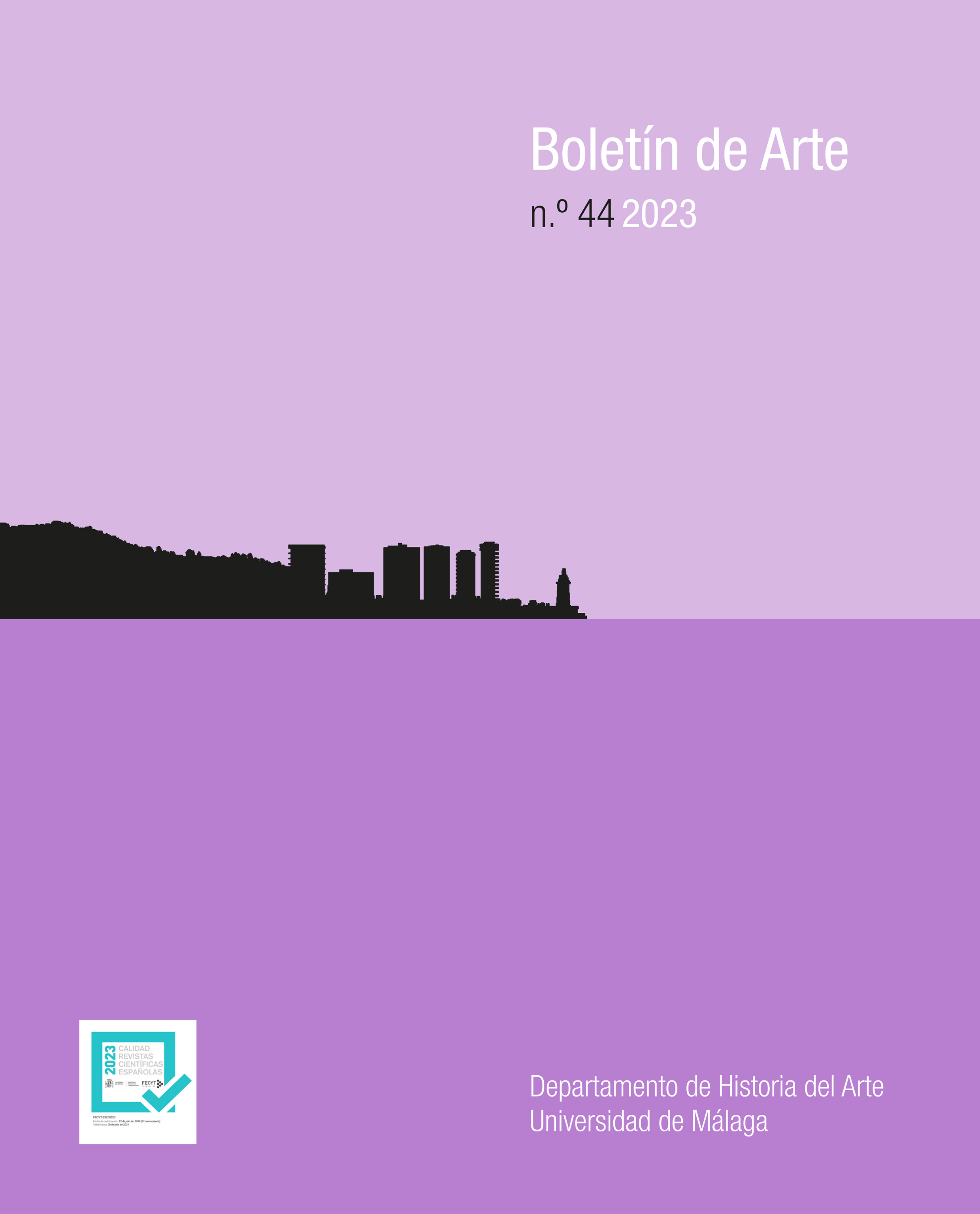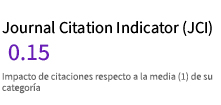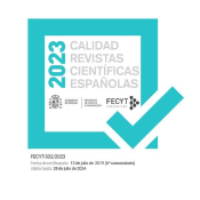Dialectical Garments. Reflections on the Use of Clothes in José Pérez Ocaña and Miguel Benlloch’s Artistic Actions
DOI:
https://doi.org/10.24310/ba.44.2023.16203Keywords:
Anachronism, Camp, Clothes, Dialectical image, Folklore, Junkman, SeedinessAbstract
This article attempts to highlight the existing connections between the idea of dialectical image proposed by Walter Benjamin and the garments that, endowded with deep significance, are main objects in the performances of two Andalusian artists: José Pérez Ocaña and Miguel Benlloch. During the transition to democracy both develop an artistic production that questions gender binarism and its modulation through the cultural identity built by the Francoist dictatorship. In their actions, the accessories and clothes become cracks in history that allow them to recover forgotten memories, a dialectical encounter between a past still alive and a present that interrogates it. The affinity of the artists with outcasts, transcribed into an aesthetic interest in poverty, links them to Benjamin’s junkman, who tries to restore their history to the dispossessed through rejected materials.
Downloads
Metrics
Publication Facts
Reviewer profiles N/A
Author statements
Indexed in
-
—
- Academic society
- N/A
- Publisher
- Universidad de Málaga.
References
ALIAGA, Juan Vicente (2018), «El arte contaminante. Apuntes sobre Ocaña en el contexto artístico español», en MÉRIDA JIMÉNEZ, Rafael (ed.), Ocaña: voces, ecos y distorsiones, Bellaterra, Barcelona, pp. 15-32.
BENJAMIN, Walter (2005), Libro de los Pasajes, Akal, Madrid.
BENJAMIN, Walter (2008/1940), Tesis sobre la historia y otros fragmentos, Ítaca, Ciudad de México.
BENLLOCH, Miguel (2013), Acaeció en Granada, TRN-Laboratorio artístico transfronterizo, Granada.
BENLLOCH, Miguel (2019), Mirar de frente, CentroCentro, Madrid.
CVETKOVICH, Ann (2018), Un archivo de sentimientos. Trauma, sexualidad y culturas públicas lesbianas, Bellaterra, Barcelona.
DIDI-HUBERMAN, Georges (2006), Ante el tiempo. Historia del arte y anacronismo de las imágenes, Adriana Hidalgo editora, Buenos Aires.
FILIGRANA, Pastora (2021), El pueblo gitano contra el sistema-mundo. Reflexiones desde una militancia feminista y anticapitalista, Akal, Madrid.
GUASCH, Óscar y MAS, Jordi (2015), «Proyectos corporales, género e identidad en España: del travestí al transexual (1970-1995)», en MÉRIDA JIMÉNEZ, Rafael y PERALTA, Jorge Luis (eds.), Las masculinidades en la Transición, Egales, Barcelona, pp. 61-77.
LÓPEZ RODRÍGUEZ, Fernando (2018), «Ocaña: tradición sin tradicionalismo», en MÉRIDA JIMÉNEZ, Rafael (ed.), Ocaña: voces, ecos y distorsiones, Bellaterra, Barcelona, pp. 53-66.
MÉRIDA JIMÉNEZ, Rafael (2016), Transbarcelonas. Cultura, género y sexualidad en la España del siglo XX, Bellaterra, Barcelona.
NEWTON, Esther (2016), Mother camp. Un estudio de los transformistas femeninos en los Estados Unidos, Editorial Alpuerto, Barcelona.
PRECIADO, Paul B. (2011), «La Ocaña que merecemos. Campceptualismo, subalternidad y políticas performativas», en VV. AA., Ocaña. 1973-1983: acciones, actuaciones, activismo, Ajuntament de Barcelona, Barcelona, pp. 72-169.
RANCIÈRE, Jacques (2002), La división de lo sensible. Estética y política, Centro de Arte de Salamanca, Salamanca.
VÁZQUEZ RUIZ DE CASTROVIEJO, Joaquín (2021), «Cuerpos vivos en acción», en VVAA, Ensayos sobre lo cutre: lecturas del archivo Miguel Benlloch, Institut Valencià d’Art Modern, Valencia, pp. 47-55.
Downloads
Published
How to Cite
Issue
Section
License
Copyright (c) 2023 Irene Campos Pérez

This work is licensed under a Creative Commons Attribution-NonCommercial-ShareAlike 4.0 International License.
Todos los contenidos publicados en la revista Boletín de Arte están sujetos a la licencia Creative Commons Reconocimento-NoComercia-Compartirigual 4.0 cuyo texto completo puede consultar en <http://creativecommons.org/licenses/by-nc-sa/4.0>

Los/as autores/as cuyas contribuciones sean aceptadas para su publicación en esta revista conservarán el derecho no exclusivo de utilizar sus contribuciones con fines académicos, de investigación y educativos, incluyendo el auto-archivo o depósito en repositorios de acceso abierto de cualquier tipo.
La edición electrónica de esta revista esta editada por la Editorial de la Universidad de Málaga (UmaEditorial), siendo necesario citar la procedencia en cualquier reproducción parcial o total.












4.png)
